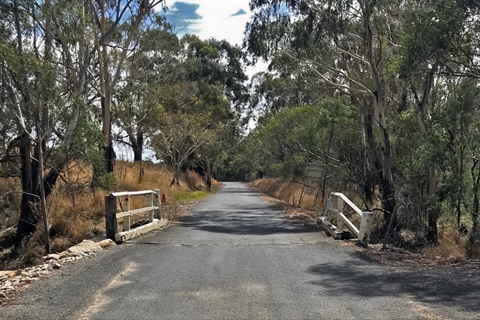Minister for Finance, Minister for Women, Minister for the Public Service
ADAM SHIRLEY, HOST: I wonder whether there’s a bit of federal money around for a street pantry of the kind there is in Ngunnawal. Well, Senator Katy Gallagher is the Finance Minister and Senator for the ACT. Senator, good morning to you.
SENATOR THE HON KATY GALLAGHER, MINISTER FOR WOMEN: Good morning, how are you Adam?
SHIRLEY: You might have been hearing, Paul McGrath and his vital Ngunnawal street pantry, which they cannot continue, and whether there is any ACT or federal money to keep it going for those in need. I guess you get stories like that from time to time in this region.
GALLAGHER: Well, certainly in my role I get right across the country. And we certainly provide a lot of investments into emergency food relief and those kinds of programs. But I’m sure between the ACT Government and the Commonwealth, we would be engaging with Paul and relevant people, I have no doubt about that.
SHIRLEY: And on redressing balances, this is a big, I guess, commitment, it would seem, on the face of it. An announcement today for the Federal Government. And that is superannuation and the way that it can be, I guess, prioritised for women in particular. Why now and why at this level?
GALLAGHER: So, thanks Adam. It is an important announcement. I think it’s, again, recognition about the focus that we have on women and driving gender equality in this country. We know that women retire with around 25 per cent less super than men, and that’s for a variety of reasons including the fact that, you know, women often work in lower-paid jobs, part-time arrangements, but also that often they take time out of their careers to care for children. And so, this is recognition that when you’re doing that, when you are taking time out of work to care for children, we believe you should be paid super on that. So, super on paid parental leave, it’s a bit of an anomaly in terms of workplace conditions that hasn’t had super paid on it. But it’s a big investment, and I think it sends a couple of messages. One, we want to do what we can to help close the super gender pay gap, but also two, that we value the work that women do, the unpaid or paid work women do, caring for children.
SHIRLEY: How much might this make a difference across different income levels, as well? As you mentioned, women do take more time out of their work for a variety of reasons. Is this an initiative that will go across, say, a $40,000 to $400,000 wage that a person might earn?
GALLAGHER: Well, it’s really for anyone who’s eligible for the government’s PPL scheme. So, often there’s a number of businesses and if you work in the public service, the entitlements to parental leave that are paid. And many of them have super paid on them. But with the government-funded scheme, for women that are eligible for that – or for parents that are eligible for that, actually – that will now have super paid on that as well. And sometimes, people combine the two payments. They’ll take what they can from work and then obviously supplement with the government scheme. But it’s essentially making sure that where the government is in control, that we are paying the super on that entitlement. And again, just an important – you know, it’s been out there for a long time as something that needs to be done. We had to find room in the Budget, obviously, to fund it. We’ve extended PPL in the last Budget so that it’s heading up to 6 months, and this will now put a super payment on top of that.
SHIRLEY: And does it get signed into law, I guess, regardless of the next election result and which stripe of government will be in power into the future?
GALLAGHER: Well I’m hoping this wouldn’t be politically contentious.
SHIRLEY: You never know though, Senator. You never know.
GALLAGHER: You never know, you never know, I agree, and having been wrangling the Senate, I absolutely understand that. But I would hope that it’s not politically contentious, I’m an optimist by nature, and that it will of course get through. We will have to pass legislation, though, to make sure that it is, you know, a payment that we can make lawfully. And that’s partly why we have a start date of 1 July 2025, because we need to get legislation in, we need to get it passed and then put the arrangements in place to have the payment occur.
SHIRLEY: Two minutes to eight, Adam Shirley with you, the Finance Minister of Australia amongst her other responsibilities and Senator for the ACT Katy Gallagher is our guest on ABC Radio Canberra. My name is Adam Shirley. In real money terms, over a lifetime, how much money might we be talking about for someone? Particularly a woman, once they’re relying on their super to live?
GALLAGHER: Well I think it depends, Adam, as all these things do, on what you earn and how much you work and all the rest of it. But you know, it would be thousands and thousands of dollars. Obviously, for younger women, that will compound over time. It just depends on a whole range of factors. But it would – it’s not an insignificant sum. Particularly when we see the gap that exists between men and women. We want to do what we can to try and close that gap. This won’t do that on its own, but it’s, I think, an important step in the right direction. There’s more to be done. We need to make sure women get paid more, get paid fairly, and that where they’ve got flexible work arrangements, they’re able to maximise those when they’ve got caring responsibilities. And all of those things will contribute to making sure they retire with more money in their pocket.
SHIRLEY: Finance Minister, we’re out of time owing to news. Now, you’ll be further outlining this case at the Press Club I think today.
GALLAGHER: I will.
SHIRLEY: We appreciate your time ahead of that today.
GALLAGHER: Thanks for having me on, Adam.








